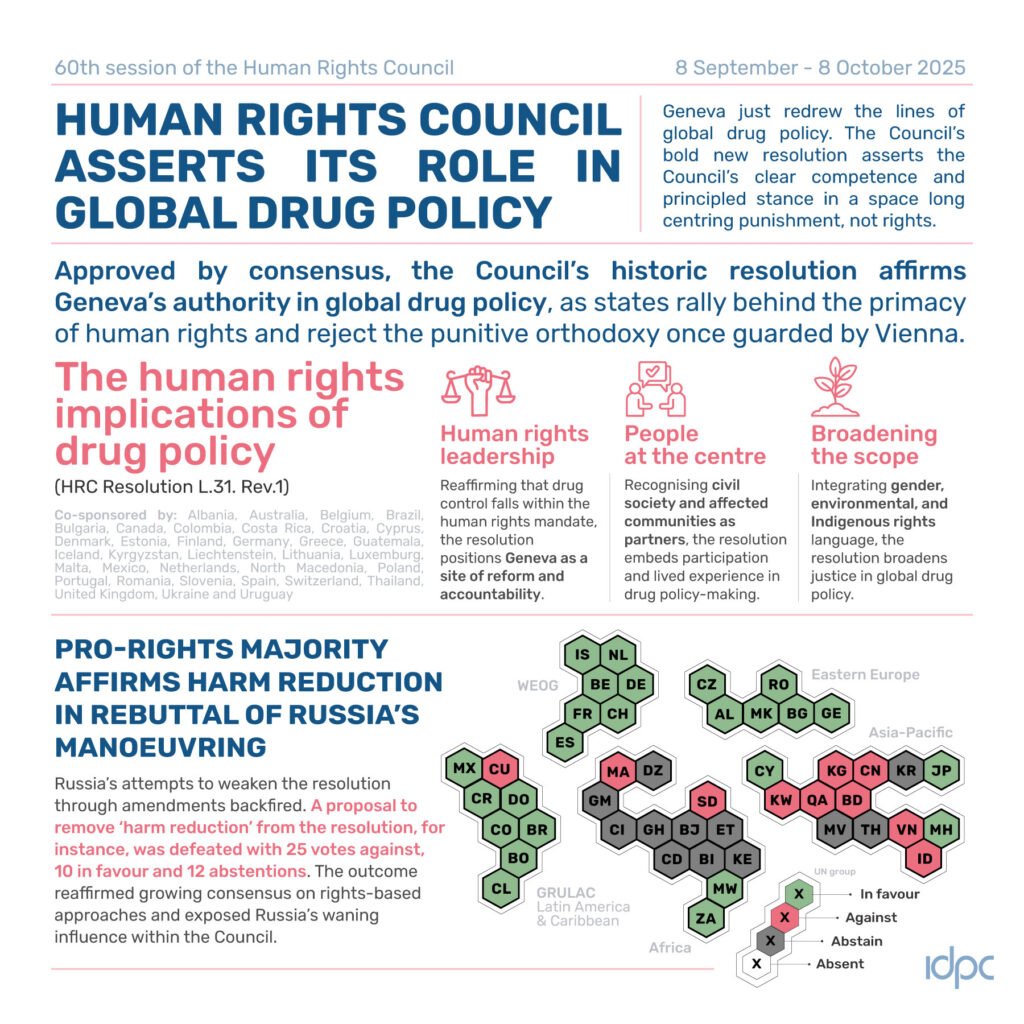On 8th October 2025 the UN Human Rights Council adopted a Resolution on the human rights implications of drug policy.

The strategic objective of the resolution was threefold:
1. Assert the role of the HRC to engage in drug policy debates in its own right, instead of contributing to processes taking place outside of Geneva;
2. Strengthen the mandate of OHCHR in providing guidance and recommendations on how to better align drug policies with human rights instruments;
3. Consolidate and expand human rights language in relation to drug policy.
To which extent the objective were achieved read more on IDPC website.
The 8th point of the Resolution stresses both the critical role of civil society and communities in drug policy and importance of enabling environment, ensuring freedom of expression and association and the right to peaceful assembly:
8. “Emphasizes the important contribution that civil society and affected communities make to the development, implementation and evaluation of drug policies, including through advocacy and awareness-raising and the sharing of expertise and knowledge, and encourages States, United Nations agencies, funds and programmes, international and regional organizations, national human rights institutions and other relevant stakeholders in that regard to involve and engage meaningfully with civil society and affected communities in their efforts to address all aspects of the world drug problem, and create and maintain a safe and enabling environment to ensure that they can operate free from hindrance, insecurity and reprisals, and can exercise the rights to freedom of expression and association and the right to peaceful assembly”.
Several countries from CEECA region co-sponsored this resolution: Albania, Bulgaria, Croatia, North Macedonia, Romania, Estonia, Kyrgyzstan, Lithuania, Poland and Ukraine.
